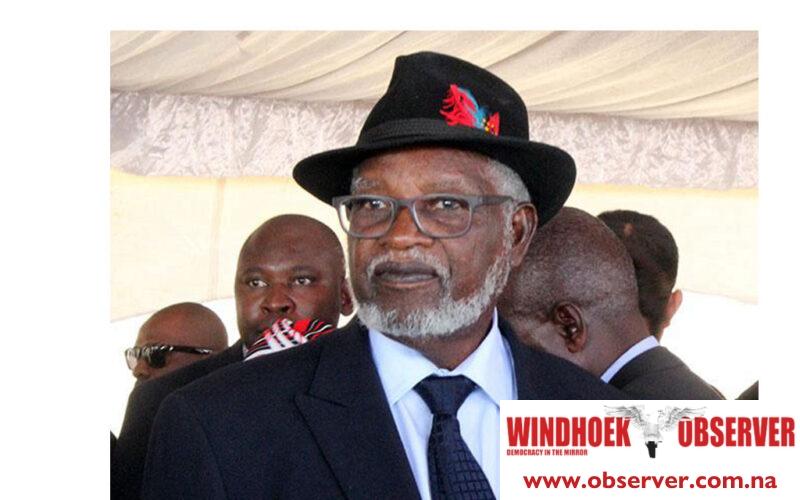Hertta-Maria Amutenja
Regional and international organisations have expressed their condolences following the passing of the founding president, Sam Nujoma, describing him as a fearless liberation hero whose legacy shaped the country’s independence.
The South African Students Union (SASU) described Nujoma as “a towering figure in Africa’s liberation struggle.”.
“He dedicated his life to the fight for Namibia’s freedom,” said the union.
It also highlighted his nearly three decades in exile as the leader of Swapo.
The United Nations in Namibia also paid tribute, stating his dedication to freedom.
“His dedication to freedom, democracy, and unity shaped Namibia. Our thoughts are with Kovambo Nujoma, Utoni Nujoma, the family, and all Namibians. His legacy inspires.”
The Embassy of Palestine emphasised Nujoma’s role in global struggles against oppression.
“From the early days of struggle, Nujoma stood alongside legendary revolutionaries, including Yasser Arafat, in his fight for freedom and self-determination,” said the embassy.
The embassy described him as a leader who remained committed to justice, both for his people and for other oppressed nations.
The Congress of South African Trade Unions (COSATU) said his passing was a loss not just for Namibia but for the entire continent. “We owe it to the gallant sacrifices of the Namibian people led by President Nujoma to deepen and strengthen the bonds between our two peoples at all levels,” the organisation said.
COSATU spokesperson Zanele Sabela added, “Your loss is our loss. The Namibian struggle and our own are inseparable.”
Swapo has described its founding president, Sam Nujoma, as a “true nationalist, Pan-Africanist, and visionary leader” who dedicated his life to the struggle for Namibia’s freedom.
In a statement following Nujoma’s passing on 8 February, the vice president of Swapo, Netumbo Nandi-Ndaitwah, said he played a central role in uniting Namibians under the party’s mission.
“A people united, striving to achieve a common good for all members of society, will always emerge victorious,” she said.
Nandi Ndaitwah urged Namibians to recommit themselves to safeguarding the gains of the revolution.
“Let us re-dedicate ourselves to safeguarding the gains of our revolution and ensuring that his rich legacy continues to inspire us from generation to generation,” he said.
Analysts have also weighed in on the significance of Nujoma’s passing, noting its symbolic value for Namibia and Africa as a whole.
Ndumba Kamwanyah, a political analyst, commented that Nujoma’s death marks the end of an era in both Namibian and African history.
“He was the last of the major frontline liberation leaders who led their nations to independence,” Kamwanyah said.
However, Kamwanyah also acknowledged the complexities of Nujoma’s legacy.
“While celebrated as a liberation hero, Nujoma faced criticism for his authoritarian leadership style, including crackdowns on political dissent,” he said. “His strong anti-Western rhetoric and controversial stance on issues like press freedom and LGBTQ+ rights sparked domestic and international debates.”
He further explained that Nujoma’s passing signifies the transition from the founding generation of freedom fighters to a new political era for Namibia and Africa.
Kamwanyah praised Nujoma’s rise from humble beginnings to becoming Namibia’s most influential political figure.
“Born on May 12, 1929, in Ongandjera, former Ovamboland, Nujoma came from a peasant family and rose to become Namibia’s most influential political figure of our time,” he said.
Under Nujoma’s leadership, SWAPO led a successful struggle for independence, with Nujoma serving as Namibia’s first president from 1990 to 2005.
Kamwanyah said his focus on national unity, reconciliation, and economic development through initiatives like Vision 2030 left a lasting impact on the country.




